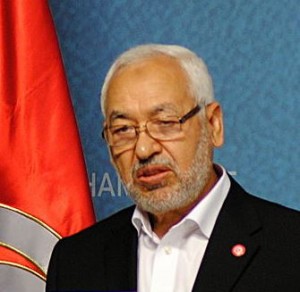The Tunisian economy has become the victim of the so-called Arab Uprising, which ironically started in Tunisia. Today’s main political feud is a showdown between a stubborn Ennahda party that is clinging to power, and an equally stubborn secular opposition that is dead set on ousting the Islamists out of governance. We are in an impasse that hurts the economy, forcing rating agencies to downgrade Tunisia, just the way Fitch did recently bringing its political risk rating down to BB-. The impact for such move is rather immediate. International financial institutions, from the long-time supporter African Development Bank to the World Bank have decided either to withdraw financial loans to Tunisia or reduce them significantly. One of them says ratings are important in assessing credit worthiness of a nation, the other says the political leaders of the country have failed to fulfill their obligations on the financial side.
We cannot always blame the politicians directly. The shadowy Salafists and the growing activity of the Jihadists do not help in projecting a stable nation and economy. The violence that started in 2011 continues, scaring foreign investors and tourists alike. So much so that Club Med decided to close its Hammamet village, citing not enough vacationers to make it worth maintaining it. This is the latest blow dealt to the already battered tourism sector. The closing of the village means that now hundreds of jobs are lost, with hundreds of families depending on these jobs likely to move into poverty. Perfect scenario for the Salafists!
As things stand today, the best scenario for the Tunisian economy is a growth rate of 2.5% this year. Analysts like to add another half a point or so to call their 2014 projection. They are assuming the political crisis will stabilize enough for Tunisia’s economy to expand a bit. I am personally not sure of any of that. I side with the collective group of Tunisian business leaders who actually anticipate economic contraction instead. This is because even a 2% growth suggests that there is at least some level of stability. But is Tunisia really stable to even generate flat growth? Probably not.
Foreign trade, a key component of the Tunisian economy has not done well, and has exacerbated the trade deficit, with exports down, while imports continue to increase. Known for its competitiveness, Tunisia is slowly facing a reversal of fortune, although that can be corrected if the politicians were to agree on anything.
In line with the trends of declining activity in the broad economy, industry observers say reported investments from January to October 2013 fell by 5.8% to settle at slightly more than TND 2.8 billion. All key labor intensive sectors so critical to maintaining social cohesion were affected, with the greatest impact being on the leather/shoe manufacturing where investment intentions fell nearly 72%. In the agribusiness, that decline was almost 46%, followed by textile and clothing at -36%, and other industries at -31%. These figures should indeed alarm the Ennahda party which clearly has all key ministerial portfolios under its leadership. Regardless of the debate on ideology, at the end of the analysis, Ennahda has no capacity in moving the economic to the right direction, as these numbers do not lie.
In light of negative sentiments up and down the economic chain, small and mid-sized businesses that are also critical in maintaining the health of the labor market is struggling because of lack of financing. Analyst firm Tunisie Valeurs noted that “the banking sector is increasingly reluctant to lend to SMEs because it remains focused on cleaning up its bad loans and therefore it is less inclined to take risks.”
For business leaders, the political impasse and the resulting security issues are the primary sources of a disastrous economic environment. Looking into the future, executive perception is one of a worsening situation. A survey conducted by the consultancy Centre Tunisien de Veille et d’Intelligence Economique (CTVIE) reveals that current political status-quo and lack of progress will lead to a worsening economic climate by the end of this year for a massive 88.9% of the executives surveyed. This group of executives is actually much more pragmatic and realistic than all the combined government statisticians and rating agencies. Collectively, they actually anticipate a -0.46% growth in 2013. That’s a negative figure and not the +2% to +3% we hear from others. What is worse is that only 3.7% of those surveyed displayed a sense of optimism. For those reporting negative sentiments, politics is bad, but terrorism activity is even more harmful. More than half (52%) reported that the recent wave of terrorist violence has had a material impact on their business. The impact is even quantified as representing a 25.46% drop in private sector activity. More dramatic is the anticipated 41% activity contraction by the end of this year.
So what’s to do in these conditions? As much as I was always in favor of letting the religious conservative ideologues govern if the people chose them, let’s face it, the Ennahda party is not likely going to solve the real problems of Tunisia. I now reached the conclusion that any party that has religion under its hat is simply not fit to govern in ways that make its decisions effective. The religious factor is a major interference to growth. Ideological and theological concepts tend to undermine the need for creativity and innovation. Religious folks, with all due respect to their believes, tend to focus on a social agenda of scaling back women’s rights, and the imposition of social practices often using force that do not bode well for economic stability and the stability of families. Unfortunately, Ennahda and its leader Rached Ghannouchi do not have good answers to the challenges facing Tunisia. And therefore, they should go.





